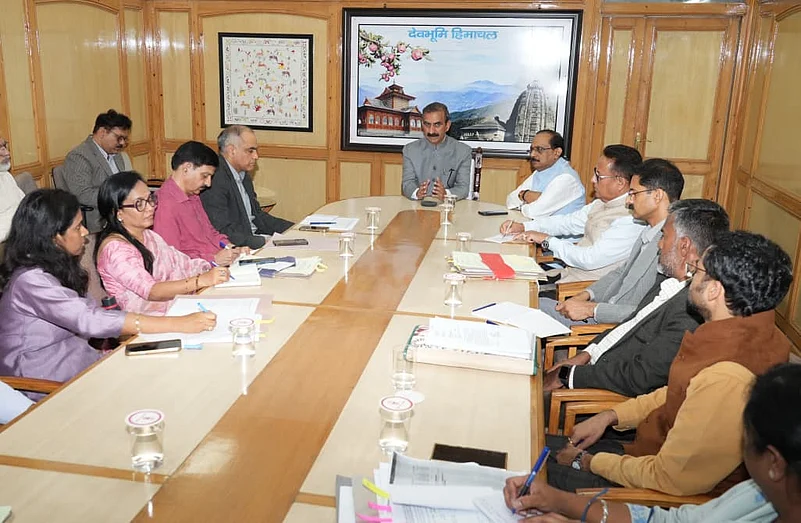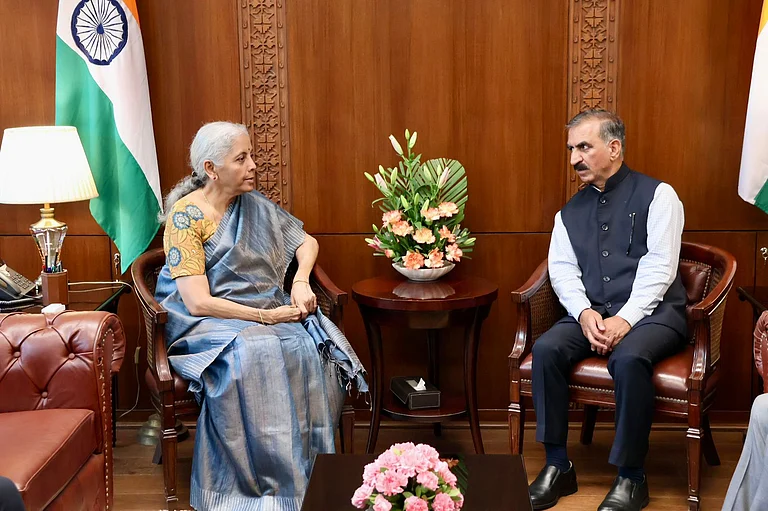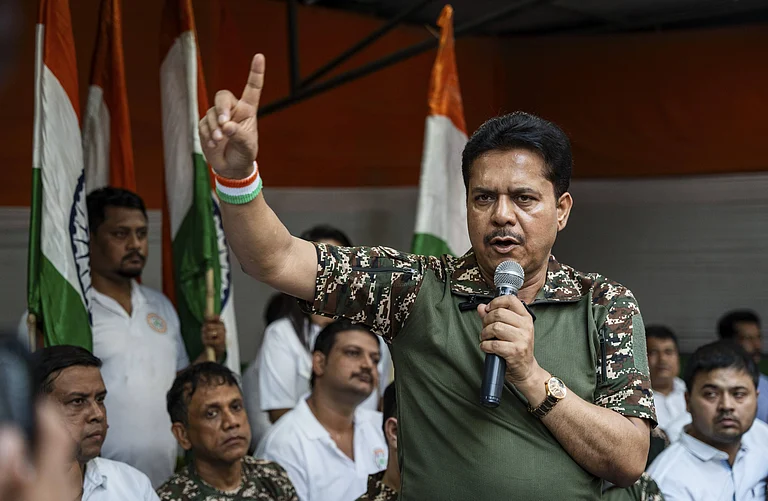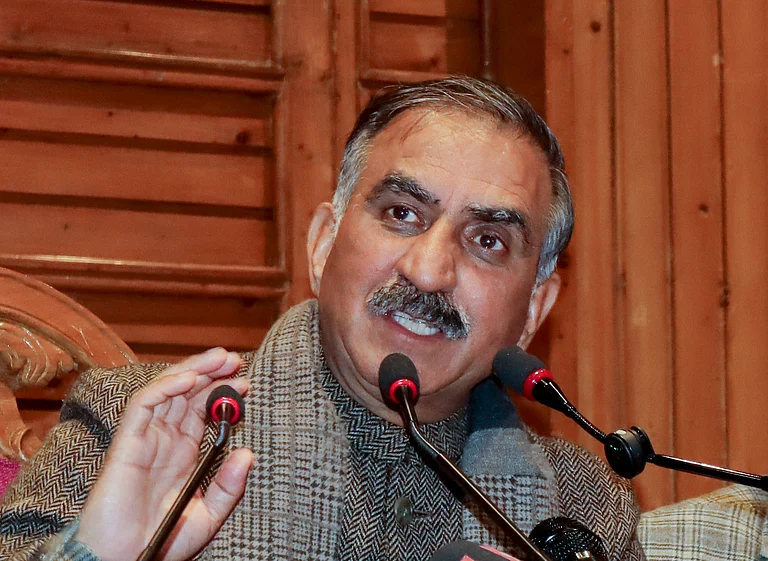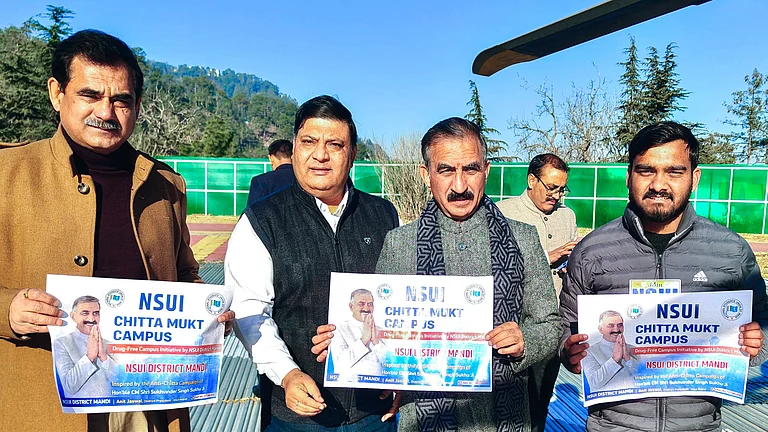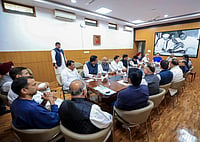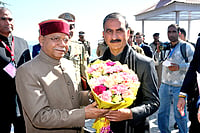
Summary of this article
For the first time, Himachal’s three top bureaucratic posts, such as Chief Secretary, DGP and Head of Forests, are all held as additional charges.
Chief Minister Sukhwinder Singh Sukhu calls it a “Vyvastha Parivartan,” while critics say the move undermines seniority, morale, and institutional stability.
While the government says this is a temporary measure, retired officers have warned that this is ad-hocism in the name of political expediency.
Is it a novel experiment in governance—an “out-of-the-box” idea to tame bureaucracy, a move driven by political exigency, or simply governance in confusion? But what’s unfolding in Himachal Pradesh has left several seasoned bureaucrats and policy observers curious and uneasy.
For the first time, Himachal Pradesh’s three senior-most administrative posts—Chief Secretary (CS), Director General of Police (DGP), and Principal Chief Conservator of Forests—are occupied on an “additional charge” basis, with no regular, full-time officeholders. This unusual arrangement is at the heart of mounting unease about the government’s intent and direction.
One experienced bureaucrat acknowledges that this unprecedented level of ad hocism threatens stability in the command structure and could have lasting negative effects on public administration, thereby undermining the very notion of good governance in Himachal Pradesh.
But Chief Minister Sukhwinder Singh Sukhu hails it, in his trademark style, as an example of Vyvastha Parivartan—a transformation in governance.
“The government has to see the suitability of officers and assign them roles to serve the public good,” he laments, indicating that he is for a targeted approach and deliveries by each one of the officers—holding assigned works, not simply the positions they enjoy by virtue of their seniorities or ranks.
Despite these claims, many view the situation as symptomatic of administrative confusion, with some officers sidelined and others rewarded, which raises questions about the longer-term effects on governance.
In March 2025, outgoing Chief Secretary Prabodh Saxena, a 1990-batch officer, was given a six-month extension. Among those he superseded in 2023 on his appointment as Chief Secretary was the 1988-batch IAS Sanjay Gupta, who consequently moved out of the state Secretariat as Chairman of the HP State Pollution Control Board and later shifted to the HP State Electricity Board (HPSEB) Ltd. as its chairman— directly to report to the Chief Minister .
Sanjay Gupta has finally found favour with the Chief Minister to replace Saxena as Chief Secretary, but the post comes with an embargo, i.e., an additional charge, not a regular incumbent. His actual posting, ordered, is Additional Chief Secretary—Town and Country Planning, Urban Development, and Housing.
The situation is no different in the police organisation already.
Ashok Tewari, Director General of Police (Vigilance and Anti-Corruption Bureau), is holding the charge of DGP (head of police), and an Indian Forest Services (IFS) officer, Sanjay Sood, is having the additional charge of PCCF—the Head of Forests (HoF).
Old-timers recall that while cases of ad hocism exist in the police and forests, the civil secretariat, the seat of governance, is witnessing this crisis of temporality for the first time, which is not beneficial.
Avay Shukla, a retired Additional Chief Secretary and prolific blog writer, describes the prevailing situation as extraordinary. He adds, “It is difficult for an 'officiating' boss to command the respect and obedience of his team.”
“Indiscriminate extensions in service to anyone or denying regular postings to the deserving demotivates those in the line of succession and encourages the more "political" or "connected" among them to play their tricks and to undermine their superiors.”
This debate gains urgency as the state struggles with heavy debt and budgetary pressure, raising the argument that ad hoc postings may serve personal interests at the expense of administrative stability and fiscal health.
“The situation is not at all very healthy. Indeed, the current state of affairs is deeply concerning. I could not imagine that during my lifetime we would see the emasculation of the state’s bureaucracy and rule of law to such an extent,” says Ashok Thakur, a retired Himachal Cadre IAS, who has also served as Secretary to the GoI, at Delhi.
Looking at the state’s civil list of some of the legendary bureaucrats like T S Negi, B C Negi, S.K. Pandeya, T.N. Tochwan, P.P. Srivastava, Mian Lal Singh, M.K. Kaw, and later Attar Singh, S S Sidhu, P.T. Wandgi, B. B. Tandon, C. P. Sujaya, Avay Shukla, and finally the 2000-era had those like Ajay Mittal, Deepak Sanan, Vineet Choudhary, V C Pharka, Ajay Tyagi, Narinder Chauhan, Tarun Shridhar, Tarun Kapoor (advisor to PM Narendra Modi ) , and Sanjay K. Murthi (now India’s CAG) were among those who set new examples in governance and policy affairs.
Politically driven transfers and ad hoc appointments, critics argue, have weakened overall bureaucratic effectiveness, eroding fairness and neutrality, and making it harder to maintain a stable, professional administrative environment.
Here, Ashok Thakur says, “In addition to political expediency, the bureaucracy itself is to be blamed to a large extent, as its greed for plum postings and cushy post-retirement jobs had crossed all limits.
Observers argue that the temporary, makeshift leadership in key positions is disastrous for governance. They assert that this represents an unprecedented and damaging shift away from stable and professional management.
Stable tenures, respect for seniority, and recognition of merit are widely held as essential for administrative excellence. The current absence of these factors is presented as a core reason behind weakening cadre management in Himachal Pradesh.
“It's time for the Chief Minister to take corrective action and abide by the rules and conventions that have stood the test of time over seven decades in Himachal Pradesh," Shukla feels.
The point of reference also happens to be Prabodh Saxena, who got an extension of six months and later vainly tried to get appointed to RERA and the HP State Electricity Regulatory Commission and eventually became Chairman of HP State Electricity Board Ltd.—a post-retirement position.
Offering an alternative perspective, Varun Chandel, Additional Advocate General, argues that the current situation is temporary and cautions against hastily condemning a process that may reflect necessary adaptation rather than administrative decay.
“Though the process for regular appointments must be underway, and such arrangements are being made unwillingly. However, I think to implement the policies of the government, it's necessary to control the bureaucracy, and it may be the best style being followed in the circumstances, which are beyond control,” he says.


